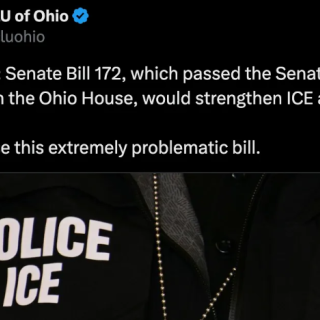CSA – CAOA – UPDATES & OTHER TIDBITS
There’s a lot to report regarding the federal Controlled Substances Act (CSA). In fact, federal full legal has reemerged in the form of the proposed Cannabis Administration and Opportunity Act (CAOA), first introduced in 2022 and reintroduced in May this year. Updates below join a few other tidbits.
CSA (AKA CONTROLLED SUBSTANCES ACT)
You might remember Mary Jane’s February Q & A on Re/Descheduling. Well, it’s now becoming a reality. Both President Biden and Vice President recently went on camera to announce the “major move” of reclassifying marijuana as Schedule III under the CSA. Subsequently, on May 16th, U.S. Attorney General Merrick Garland, who leads the Department of Justice (DOJ), submitted a “notice of proposed rulemaking” to the Federal Register. The notice triggers a 60-day public comment period administered by the Drug Enforcement Administration (DEA). During this time frame, the public - interested individuals and groups – may submit comments, suggestions, recommendations, and requests for hearings for or against the proposed rule. A detailed description of this process can be found here.
HEADS UP!! Every person interested in cannabis must compose and submit a comment in support of rescheduling. Comments should be submitted to the DEA through the Federal eRulemaking Portal: https://www.regulations.gov/commenton/DEA-2024-0059-0001. Alternatively, comments can be sent by regular or express mail to DEA Federal Register Representative/DPW, 8701 Morrissette Drive, Springfield, Virginia 22152. Please reference “Docket No. DEA-1362” on all correspondence. All comments will be part of the public record. Interested parties may also request a hearing. The deadline to comment is July 22, 2024. Read this notice for more details on the rulemaking process. Do it now!!
The genesis of this rescheduling attempt – there have been five – began with the Democratic Party’s 2020 presidential platform:
“Democrats will decriminalize marijuana use and reschedule it through executive action on the federal level. We will support legalization of medical marijuana, and believe states should be able to make their own decisions about recreational use.”
Looks like they’re doing that. In October 2022, following the procedures outlined in the CSA, President Joe Biden asked “the Secretary of Health and Human Services [HHS] and the Attorney General to initiate the administrative process to review expeditiously how marijuana is scheduled under federal law.” Following an eight-factor test, HHS found that marijuana met several criteria and recommended down scheduling to Schedule III. As the next step in the process, the DEA responded with a public comment period. Throughout this process, “HHS’s scientific and medical determinations are binding on DOJ,” and the agency must accord “significant deference” to them, at least until the DEA initiates the rulemaking process.
Face it. The DEA has been the quintessential anti-drug warrior since its inception 50 years ago. It “Just Said No” to every rescheduling attempt since then, even overriding its own administrative law judge. The DEA sees the criteria for “currently accepted medical use” (CAMU) solely as FDA approved single chemical entities. The DOJ apparently rejected the DEA’s continued recalcitrance, calling it “impermissibly narrow,” which is why the proposed rescheduling rule was signed by the Attorney General instead of DEA Administrator Anne Milgram. The DOJ also issued a legal opinion designed to assuage DEA concerns.
That rescheduling was initiated by the President and Department of Justice – not the DEA – will carry a good deal of weight as the DEA will inevitably weigh in after the comment period. Even though the drug warriors are mandated to consider the HHS evidence, if history repeats itself, DEA can still reject rescheduling altogether. Maybe Biden and Garland can thwart that.
The pieces seem to be falling in place for the “major move” – marijuana/cannabis’ soon-to-be Schedule III drug. But, until the final ruling is issued, marijuana remains Schedule I, with its cache of vile injustices.
HEADS UP! Even though possession of adult use cannabis is now legal in Ohio and even though the plant will be down scheduled, it’s important to be careful when carrying product. Make sure you’re not possessing anything on federal property. This might include, say, the downtown federal buildings, Wright Patterson Airforce Base, Hopewell National Park, and a host of other locales. From the DEA, here are the general penalties for “trafficking” Schedule III drugs in any amount:
First Offense: Not more than 10 years. If death or serious injury, not more that [sic] 15 yrs. Fine not more than $500,000 if an individual, $2.5 million if not an individual.
Second Offense: Not more than 20 yrs. If death or serious injury, not more than 30 yrs. Fine not more than $1 million if an individual, $5 million if not an individual.
Under Issue 2 (adult use marijuana), maximum legal possession quantity is 2.5 ounces of plant material or 15 grams of extract. At least 37 Ohio cities have formally decriminalized cannabis, in some jurisdictions, enabling possession of up to 200 grams with no fine or time. Medical marijuana patients can possess a “90-day supply.” Again, if you’re carrying cannabis, avoid federal property regardless of scheduling.
Please see Mary Jane’s February Q & A on Re/Descheduling for the pros and cons of rescheduling.
Clearly, Schedule III, while a “major move,” does not solve the criminalization of the plant. It takes the U.S. Congress to do that.
REMOVING CANNABIS FROM THE CSA
Removing cannabis from federal scheduling altogether – a project for Congress – can solve many of the plant’s problems. This might be accomplished in two ways: one for medical marijuana and one for adult use.
- Schedule VI – Medical. This is an idea brought to you by Americans for Safe Access (ASA). As discussed, cannabis does not fit neatly into the FDA’s regulatory scheme. The agency’s drug approval process relies almost solely on evaluating single chemical entities. It’s a rigorous, expensive, and time-consuming process can exceed 10 years at a cost of over a billion dollars. Marijuana is a plant that is grown, not concocted in a laboratory. Moreover, it seems ridiculous to incur exorbitant costs – that have made pharmaceuticals unaffordable – for a widely used plant, whose history encompasses 20,000 years. Enter Schedule VI (six). This proposed regulatory mode would form a national medical cannabis program separate from the criminal justice system (and the DEA), and would encompass cannabis and hopefully other natural, multi-compound substances and therapies rooted in plants. And it would craft regulations, advance research, and devise protocols. https://schedule6.org/
- Cannabis Administration and Opportunity Act (CAOA) – Adult use. This bill is a holdover from the 117th Congress in 2021-22 that has been reintroduced as S. 4426 in the 118th Congress in 2023-24. The same three U.S. Senators who introduced it last session – Cory Booker (D-NJ), Majority Leader Charles E. Schumer (D-NY), and Finance Committee Chairman Ron Wyden (D-OR) – did the same on May 1st, just one day after the Biden administration initiated the rescheduling process. Here is Senator Booker’s press release announcing reintroduction, here is the summary of the new version, and here is its full text. The CAOA, including its 2021 “Discussion Draft” has changed little since its introduction that year. Here are Key Points from Mary Jane’s Guide in 2021, and here is the draft of Senator Schumer’s original bill. Here is 2021 analysis of the CAOA from the Tax Foundation that includes state level tax rates on adult use cannabis.
- Other federal legalization legislation – 118th Congress (2023-2024): H.R. 6028, States Reform Act of 2023, Sponsor Nancy Mace (R-SC-1); H.R. 5601, MORE Act, Sponsor Jerrold Nadler (D-NY-12); H.R. 2598, PREPARE Act of 2023, Sponsor David Joyce (R-OH-14).
Does rescheduling legislation have a snowball’s chance at passing in a heavily divided Congress during an election year? I think you know the answer … The best chances for change still reside in rescheduling.
REMINDER: Submit your rescheduling comment to the DEA here: https://www.regulations.gov/commenton/DEA-2024-0059-0001. Comments can also be sent by regular or express mail to DEA Federal Register Representative/DPW, 8701 Morrissette Drive, Springfield, Virginia 22152. Please reference “Docket No. DEA-1362” on all correspondence. Deadline is July 22.
OTHER TIDBITS
Cannabis and child custody. It has come to my attention that several Ohio families have experienced hassles from Children’s Services over medical cannabis use in households with young children. While the specifics surrounded these hassles have not been shared, I’d like to remind medical cannabis families about these clauses in the Administrative Code that pertain to marijuana and child custody:
- Medical Marijuana: Ohio Administrative Code – Section 3796.24 | Liability.
“(B) Unless there is clear and convincing evidence that a child is unsafe, the use, possession, or administration of medical marijuana in accordance with this chapter shall not be the sole or primary basis for any of the following: (1) An adjudication under section 2151.28 of the Revised Code determining that a child is an abused, neglected, or dependent child; (2) An allocation of parental rights and responsibilities under section 3109.04 of the Revised Code; (3) A parenting time order under section 3109.051 or 3109.12 of the Revised Code.”
- Adult Use Marijuana: Ohio Administrative Code – Section 3780.33 | Liabilities and immunities. Similar to medical marijuana.
Here is some good advice from a law firm on childcare and cannabis.
Blossom Bar. Do you have an upcoming event at which you’d like to serve colorful, enticing, and delicious (nonalcohol) drinks? Look no further than the mobile Blossom Bar. These beverages are crafted with the finest ingredients, including hemp-derived cannabinoids, terpenes, adaptogens, and nootropics, offering a healthful alternative to traditional alcohol. Learn more on Blossom Bar Facebook page here. For more information or to schedule an event, please complete the form here, email hello@myembodylife.com, or call, leave a voicemail, or text 614-321-8035.
=-=-=-=-=
Mary Jane Borden is a best-selling author, skilled graphic artist, insightful analyst, and award-winning cannabis activist from Westerville, Ohio. During her 40-year career in drug policy, she co-founded seven cannabis-oriented groups, co-authored four proposed constitutional amendments, lobbied for six medical marijuana bills, penned over 100 Columbus Free Press articles, and has given hundreds of media interviews. She is one of the Courage in Cannabis authors, with articles in both editions. Her artwork can be viewed at CannabinArt.com and she can be reached at maryjaneborden@ gmail.com.



